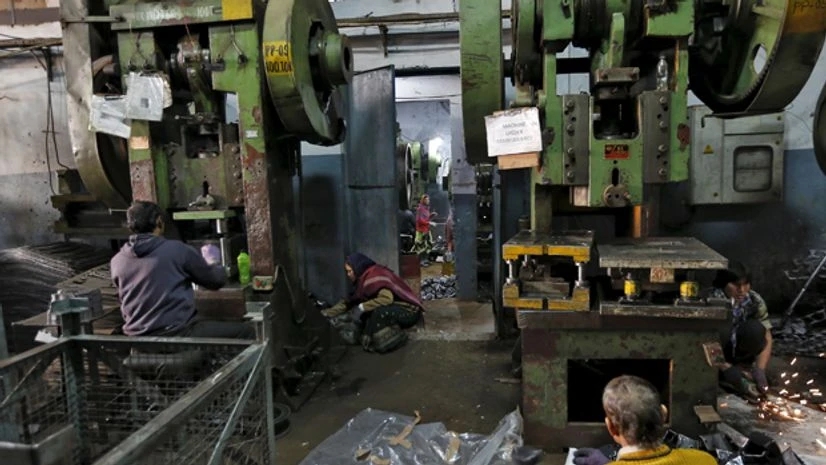Mahindra CIE, the Indo-Spanish manufacturer of automobile parts, made yet another acquisition last month. It acquired Bill Forge, a Bengaluru-based forging company, for Rs 1,331 crore. This was its ninth acquisition since 2005.
For Mahindra CIE, which already has forging capabilities for four-wheelers, the buyout will offer new possibilities in the burgeoning two-wheeler segment, where its clients include Bajaj Auto, Honda Motorcycle and Scooter India, Suzuki Motorcycles, TVS Motors and Yamaha, among others.
Hemant Luthra, chairman, Mahindra CIE, says, “We looked at this company before Kedaara (promoter’s of Bill Forge) bought it, and we liked it. But our ethics did not allow us to jump into the transaction since Kedaara was already pursuing it.” Private equity firm Kedaara Capital owned about 40 per cent in the forging company.
One reason for the acquisition now is Mahindra-CIE’s desire to have a pan-India footprint. “Why do we like the company? Because we are in the west (of the country) and we do not service Hyundai and other companies as much as we would have liked. Bill Forge is in the north and south, so we get the geographical diversity. It is into two-wheelers and we are into four-wheelers. And, finally, it has cold-forming technology and we have hot forging, it makes smooth parts, we do large parts, there is a complementarity of business,” says Luthra.
The Bill Forge buyout is the biggest takeover deal in the auto component space so far this financial year, but it is not the only one. In all, there have been six acquisitions since January. The goal of each one of them has been to acquire new technology as well as expand geographical reach.
Overseas drive
Some of these buyouts have been from Europe as plummeting auto sales have made component suppliers potential bargains for Indian companies. Tata AutoComp Systems, a diversified auto parts conglomerate led by the Tata Group, acquired Sweden-based engine cooling supplier TitanX in August for an undisclosed amount. The world’s major commercial vehicle manufacturers— such as Volvo, Daimler, Scania and Iveco— are among TitanX’s customers.
Ajay Tandon, managing director and chief executive, Tata AutoComp Systems, says, “TitanX has the latest technology in engine cooling solutions, which will help enhance our offering to our customers in commercial vehicle segment outside India. Given the challenges the auto-industry faces in emission control, this acquisition is a crucial part of our strategy to expand globally and fortify our presence in the cooling and emission control segments.”
Smaller Indian companies too are jumping on the acquisition bandwagon. Uno Minda and Spark Minda have each bought one company this year. While Uno Minda acquired the global lighting business of Spain-based Rinder Group for Rs 152 crore, Spark Mind tookover Haryana-based Panalfa Autoelektrik for Rs 45 crore.

Motherson Sumi acquired the automotive business unit of Abraham and Co in Hungary for about Rs 77 crore last month. The Delhi-based supplier of auto parts has been buying companies outside the country on a regular basis. Its Vision 2020 includes targeting a turnover of $18 billion by 2019-20.
“There are a lot of things happening and we would be making an announcement only when they fructify. The acquisitions are customer-driven and targeted to provide global solutions,” says a senior executive of Motherson Sumi.
Companies are more keen on global acquisitions than within the the country. The promoters of Aurangabad-based Endurance Technologies, which came out with an initial public offering, for example, say they are on a hunt for companies in Europe.
What’s fuelling it?
“Given the subdued demand and surplus capacities, the industry has been in a consolidation mode over the past two years, taking steps towards deleveraging its balance sheet,” says an ICRA study.
It says to beat the slowdown in the automobile space, suppliers are focusing on higher value-added products, which can provide a cushion against a fall in auto demand and also insulate them from cut-throat competition in the commoditised segments.
Fresh taxes on new cars, challenges on emissions and court-imposed ban on diesel vehicles had crippled demand for new vehicles last year and in turn hurt the demand for auto parts.
The acquisition strategy appears to be working. According to data from the Automotive Component Manufacturers Association (ACMA), the components industry has seen a compounded annual growth of 6 per cent over the last five years. In 2015-16, the industry witnessed revenues of Rs 2.55 lakh crore, a growth of nearly 9 per cent from 2014-15.
But the strategy also has its pitfalls. First up, though Europe has been hit by a downturn, the valuations of auto part suppliers in the region are holding up. Several acquisitions made by Indian companies in those markets have gone wrong and they have either been sold or remain as loss-making concerns.
In 2012, Pune-based Bharat Forge liquidated its plant and machinery in the US after continuous losses recorded from the assets it acquired seven years ago. With the exception of Tekfor, all other units of Amtek Auto are also making losses.
Ranbir Singh, president and chief executive, GNA Axles that raised Rs 130 crore through an IPO last month, says, “Acquiring companies in Europe is easy, but there are many examples of loss-making units which were acquired by Indian companies and have remained loss-making despite years of effort to turn them around.” GNA makes rear axles shafts for commercial vehicles.
Experts say while suppliers in Europe offer a high-level of technology given that the region is home to many premium automobile manufacturers such as Volkswagen, Fiat, Mercedes-Benz, BMW, Audi and Land Rover, the cost of operating these companies is also high.
“Several Indian companies, seven to eight years ago, had rushed in to buy suppliers in Europe and the US attracted by their low valuations. Almost each of those companies are today either only slightly above profitable or are making losses. Some even sold them at a loss to reduce the consistent blow to their margins,” says a Mumbai-based analyst.

)
